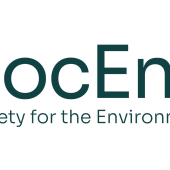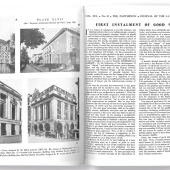Sustainability winner: Midland Heart for Project 80 – Eco Drive
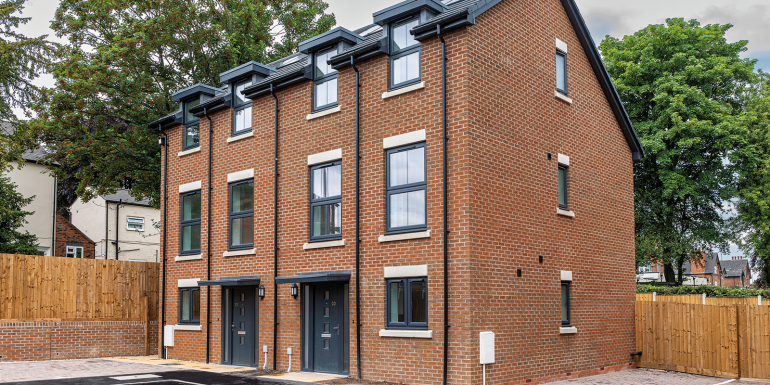
Winner: Midland Heart for Project 80 – Eco Drive, a research and development programme in conjunction with Birmingham City University, product manufacturers, industry bodies and contractors to better understand the Future Homes Standard challenge
Project 80 set out to understand building design principles that work well and should be adopted as standard, evaluate the performance of different products and technologies, identify the information requirements of residents and allow housebuilders to make Future Homes decisions based on rigorous empirical evidence.
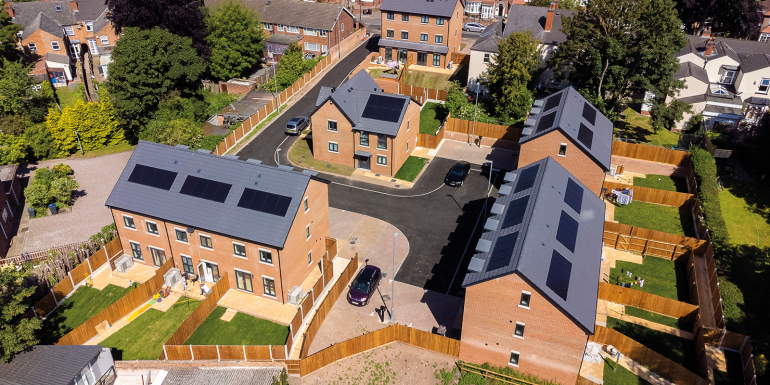
A fabric-first approach means that no future work will need to be undertaken to the building fabric to improve its performance
A steering group (along with various technical working groups) had regular online meetings to ensure the supply chain and individual organisations worked as one. Suppliers were encouraged to flex their technical muscles: for example, Besblock modelled the house types in the SAP Beta software to check the project was going to achieve the desired CO2 reduction, and Xtratherm modelled bespoke project specific psi values for the thermal bridging work.
Multiple standard assessment procedures (SAPs) were undertaken, including design, construction and as-built SAPs to ensure the procured products maintained the required design performance. Energy performance, indoor air quality, temperature and resident feedback all continue to be monitored. The project is providing manufacturers (including Baxi, Xtratherm, GlenDimplex, Vaillant, Envirovent) with evidence of as-built performance and occupant impact on the application of their technologies.
User engagement started before the residents moved in with a workshop to show them the homes, demonstrate how they work and how to maximise their potential. The residents have monthly post-occupancy evaluations to understand any challenges or information requirements they have in relation to the homes.
In addition, site visits by major housebuilders, SME housebuilders, housing associations, local authorities and government departments, including the team at the Department for Levelling Up, Housing and Communities, who are responsible for the Future Homes Standard (FHS), share the learning. Project 80 data and findings will be used to inform a government-led technical consultation on the Future Buildings Standard as well as being disseminated to the wider housing sector to help reduce the R&D burden on SME housebuilders and housing associations.
Sustainability
Eco Drive is a former brownfield site developed into 12 high-quality new homes as part of a voluntary right-to-buy replacement scheme. The site has been constructed using a traditional build with locally sourced products and adapted to incorporate the required low and zero carbon technologies to satisfy an 80% CO2 emission reduction and utilisation of low-carbon heating and hot water.
The project has taken a fabric-first approach, which has significantly reduced the energy consumption of the dwellings and means that no future work will need to be undertaken to the building fabric to improve its performance. In addition, the project has incorporated multiple renewable technologies, including photovoltaics (PVs), hot water heat pumps, ASHPs, MVHR and wastewater heat recovery systems to either reduce the energy consumption/CO2 emissions further or contribute to energy generation.
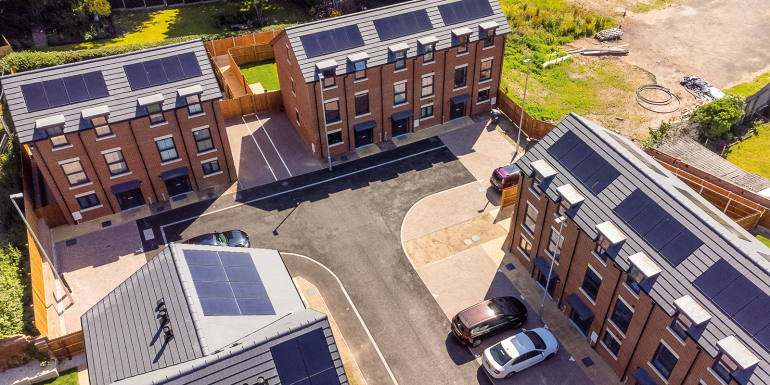
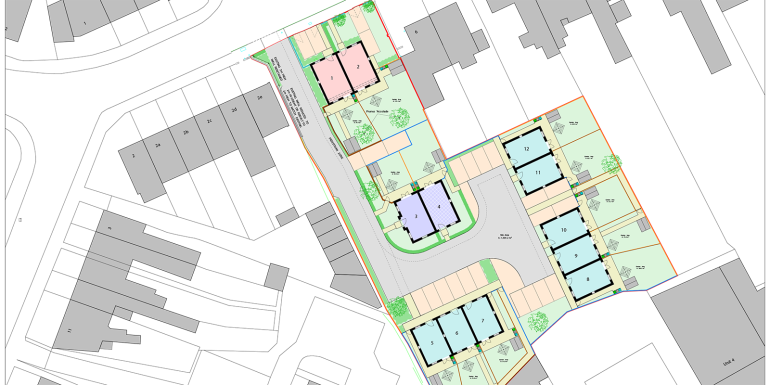
The estate of 12 new builds incorporates soft landscaping and low-carbon heating systems
Judges’ comments
I’m absolutely bowled over by this – really high-quality work in terms of whole supply chain integration and an open-source attitude to sharing learning. Absolutely where we need to be on sustainability. This is a truly collaborative, progressive project and the results of the research will be used to inform countless projects in years to come.
The combination of fabric improvements, low-carbon heating systems and other low- and zero-carbon technologies means that the plots on Eco Drive have achieved a CO2 emission reduction of between 80% and 90% compared to current Building Regulation requirements – based on the SAP calculations. For example, plot 1’s CO2 emissions have reduced from 16 kg/m2/yr to just 2.4 kg/m2/yr; plot 3 has reduced from 18 kg/m2/yr to 3.7 kg/m2/yr; and plot 5 has reduced from 17 kg/m2/yr to 1.7 kg/m2/yr.
Heating loads have reduced by approximately 60%, which has contributed to an anticipated reduction of 65% to the running cost of the properties. This presents a significant cost saving for the residents at an especially difficult time of energy price increases. In addition, the PV is likely to generate 1,500 kWh/year. Due to the fabric efficiency as well as the renewables technologies, it is foreseen that (based on the SAP calculations) the running cost for one of these homes will be circa £214 per year (for heating, hot water and lighting) compared with £486 had they been designed to 2013 regulations (at 2020 prices).
As there are multiple ways to model the FHS, to maximise the research benefit, the project incorporated different specifications. On specific plots they have altered the block density; incorporated differing airtightness levels and ventilation strategies; featured various heating and hot water approaches and used multiple manufacturers for the systems (see bit.ly/CABEProject80).
For the building fabric, they used:
- aircrete blocks (sustainable as uses waste products from power plants that would otherwise go to landfill)
- Xtratherm Insulation is providing a take-off service to ensure less waste
- Besblock Star Performer blocks that incorporate 24% reduced raw material usage, contains recycled aggregates, is made with low CO2 cement, have an expected lifespan in excess of 150 years, and is 100% end of life recyclable
- a zero fossil fuel curing system fuelled by West Midlands construction waste.
For the fittings, they used the first range of recyclable kitchens manufactured by Symphony, and smart sockets from Measurable Energy, which through machine learning can reduce the energy consumption from idle appliances. The project team are monitoring energy performance at an individual circuit level, feeding the data back to the residents so they can understand their energy use.
Along with bird boxes, bat boxes and hedgehog highways to enhance the habitat, the soft landscaping includes meadow grass with wildflowers to encourage insects, and the site incorporates EV charging points.
For more information, visit bit.ly/MidlandHeartProject80



